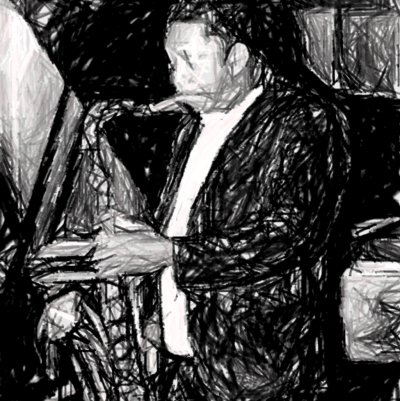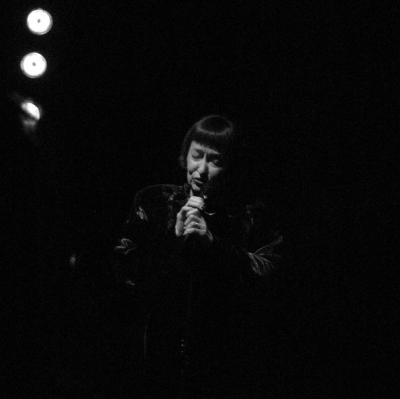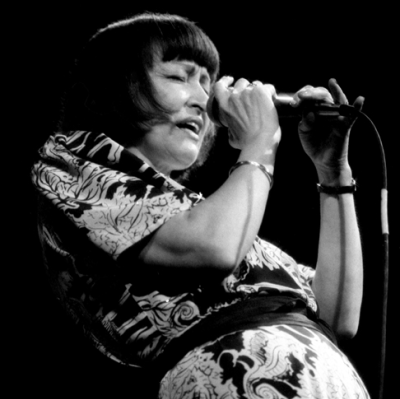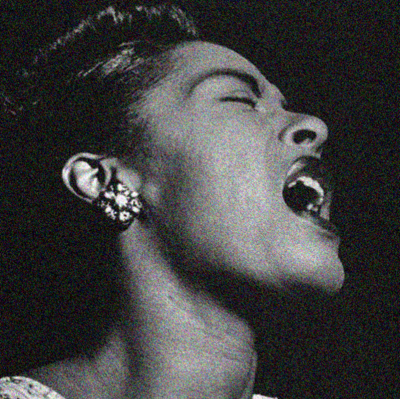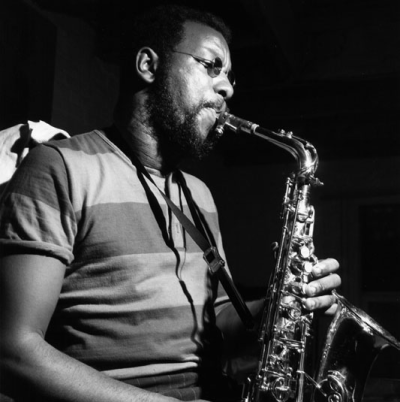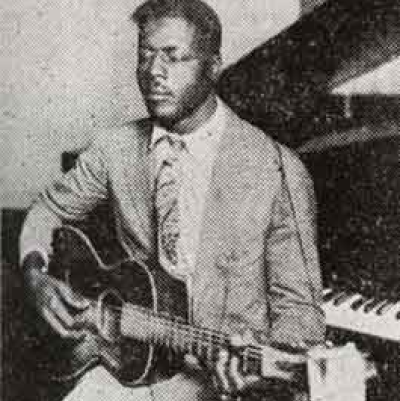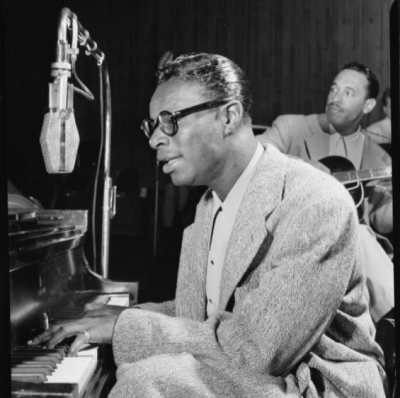.
.
The Sunday Poem is published weekly, and strives to include the poet reading their work.
George Kalamaras reads his poem at its conclusion.
.
.
___
..
.
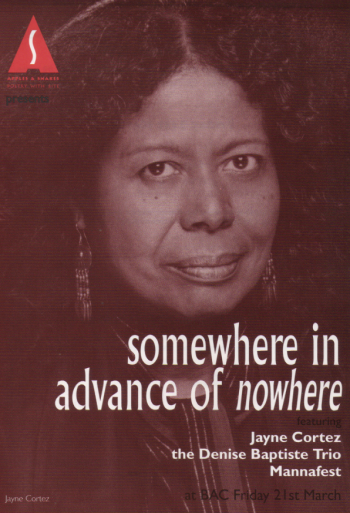
.
.
Jayne Cortez Meets Thelonious Monk One Night and Decides to Revise Her Life
Maybe it happened this way. Jayne Cortez
sitting at the Five Spot, scribbling in her notebook.
……………..Sipping a bourbon and water. Perhaps it happened
when she was ovulating, the egg of her open
and awake. Something entered her. Some sound she had
…………………….not yet heard. Like bees bathing the blood.
There he was—Sphere himself. That Chinese sedge hat
Pharoah Sanders also later wore. His thrumping notes
……………..somehow something she knew had to be part of her
poems, part of the parting from what had been. Her African
and Filipino roots were there in the missing fifth note.
…………………….In the way Monk hunched over the blast
furnace of black and white keys he commanded. Yes,
Ornette Coleman would be there in her future, marrying
……………..and divorcing music, poetry, and more. Sure, Dakar,
Senegal, would ask of her her voice—years later—and she kept
one tongue there and one in New York. But for now, Pisstained
…………………….Stairs and the Monkey Man’s Wares. As she knew
what was wet and slippery and muck. Monk’s breathing
entering her steady Woman Breath. A third thing born
……………..between them as if she were the offspring,
an imagined lovechild, of her heroes Sarah Vaughan
and Aimé Césaire. Or perhaps of others she adored
…………………….like Dinah Washington and Diz. Henry Dumas
was there coaxing Josephine Baker. And Lorca, of course,
though when he coupled with James Baldwin the only child
……………..they could conceive was the right to right livelihood
and equal tongue. She heard Monk play “Ruby, My Dear,”
“Epistrophy,” and “Crepuscule with Nellie.” And she knew
……………………once and for maybe the world could be fully
right again. As if it ever had been. The legacy of the slave trade
plagued her so much she settled in Senegal after years in L.A.
……………..in order to find the root chords of disharmony
she might splinter and shift. Somewhere in Advance of Nowhere,
she said, in a book title meant to disarm. Firespitter. Scarifications.
…………………….Mouth on Paper. And we knew what she knew—
that there were Borders of Disorderly Time. Clocks mapped onto
mouths, confused by their own hands. Perhaps it went this
……………..way. One night at the Five Spot in a room of swirling
blue smoke. That Jayne scribbled in her notebook. That Monk
reached into her and bathed the egg. Or perhaps her Woman
…………………….Breath revealed to her it happened in other
ways. Perhaps time went dead. That things happened
in reverse. That Monk heard her words and borrowed from her
……………..The Everywhere Drums of her birth.
.
Listen to George Kalamaras read his poem
.
.
.
___
.
.
photo by Jim Whitcraft

George Kalamaras is former Poet Laureate of Indiana (2014– 2016) and Professor Emeritus at Purdue University Fort Wayne, where he taught for thirty-two years. He has published twenty-seven collections of poetry, eighteen full-length books and nine chapbooks. He recently won the 2024 Indiana Book Award for his book To Sleep in the Horse’s Belly: My Greek Poets and the Aegean Inside Me, a 300-page chronicle of George’s Greek ancestry—literary, artistic, and familial (Dos Madres Press, 2023).
.
.
Watch a 1966 film of Thelonious Monk performing his composition “Epistrophy,” with Charlie Rouse (saxophone); Larry Gales (bass); and Ben Riley (drums).
.
.
___
.
.
.
.
Click for:
Information about Kinds of Cool: An Interactive Collection of Jazz Poetry
More poetry on Jerry Jazz Musician
“Saharan Blues on the Seine,” Aishatu Ado’s winning story in the 68th Jerry Jazz Musician Short Fiction Contest
More short fiction on Jerry Jazz Musician
Information about how to submit your poetry or short fiction
Subscribe to the (free) Jerry Jazz Musician quarterly newsletter
Helping to support the ongoing publication of Jerry Jazz Musician, and to keep it commercial-free (thank you!)
.
___
.
.
Jerry Jazz Musician…human produced since 1999
.
.
.








